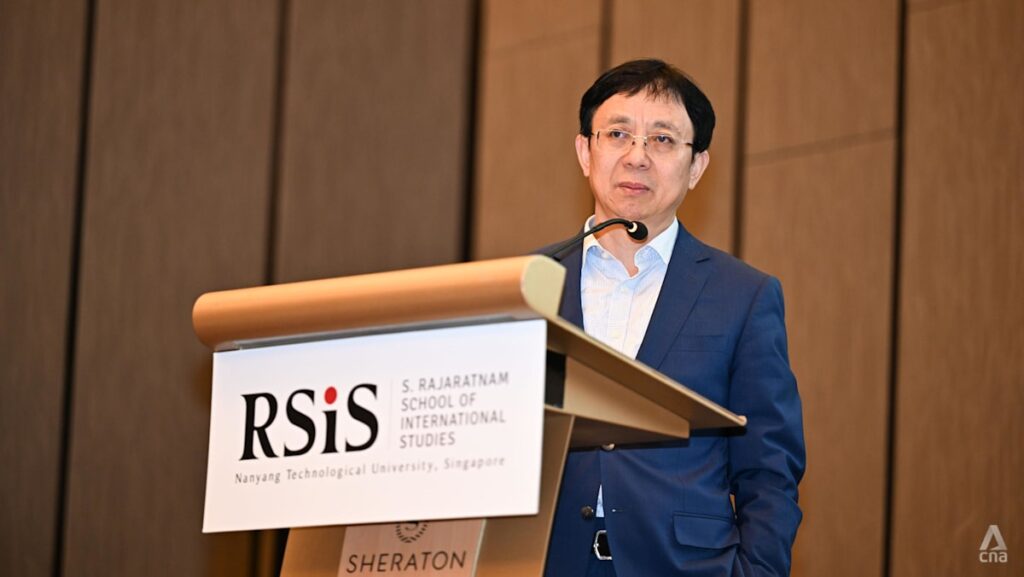On security, China may take an “easier” attitude towards the Taiwan issue, because if the US reaffirms its one-China policy, it will help reduce Beijing’s concerns over the issue of Taiwan independence, Wu said.
China views Taiwan as its territory and has stepped up military and political pressure over the past few years. It has repeatedly warned that it views any support for Taiwan independence as a red line.
“I think it’s kind of similar to what we see in the past. The only difference is that this time, China can deliver more economic goods to the US because of China’s rising economic and financial power,” Wu said.
HOW WOULD US ALLIES REACT?
When questioned on how US allies might react to a US-China grand bargain, Wu was of the view that they would welcome it.
On one hand, it sends out a message that the US under Trump is trying to reduce its military presence and security commitment to the region while urging its allies to spend more on their militaries, he said.
“This has been resisted by South Korea, Japan and Australia. Because they have to make their own decisions about what positive GDP (gross domestic product) they should spend on the military, they don’t just want to follow Trump’s numerical instructions,” he said.
Under Trump, the US has been pressing its allies to increase defence budgets, often criticising them for relying too heavily on America’s security umbrella.
On the other hand, Wu believes a successful Sino-US grand bargain will create more conducive conditions for America’s allies to engage economically with China.
He pointed out that in the case of Japan, South Korea and Australia, China is already their top trading partner.
The regional landscape in the wake of a grand bargain may essentially be similar to how it was after the Cold War, when most countries reduced their military spending and concentrated more on economic growth, Wu suggested.
“Most of the US allies would welcome a grand bargain between China and the US … (they) may worry more about Trump’s “inward-looking” strategic posture rather than a Sino-US grand bargain,” he said.
Wu was also asked if there was a scenario where China would possibly lean towards forging alliances rather than sticking to its traditional partnership model, particularly in the context of security.
Amid mounting “strategic pressure” by Washington, there has actually been debate in China on whether this policy should be adjusted, whether it should ally with Russia or Iran or some other countries in this region,” Wu shared.
https://www.channelnewsasia.com/east-asia/united-states-china-grand-bargain-taiwan-security-wu-xinbo-rsis-5394856


